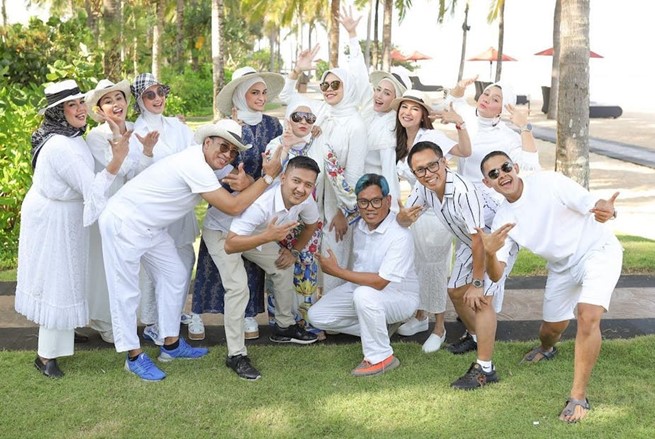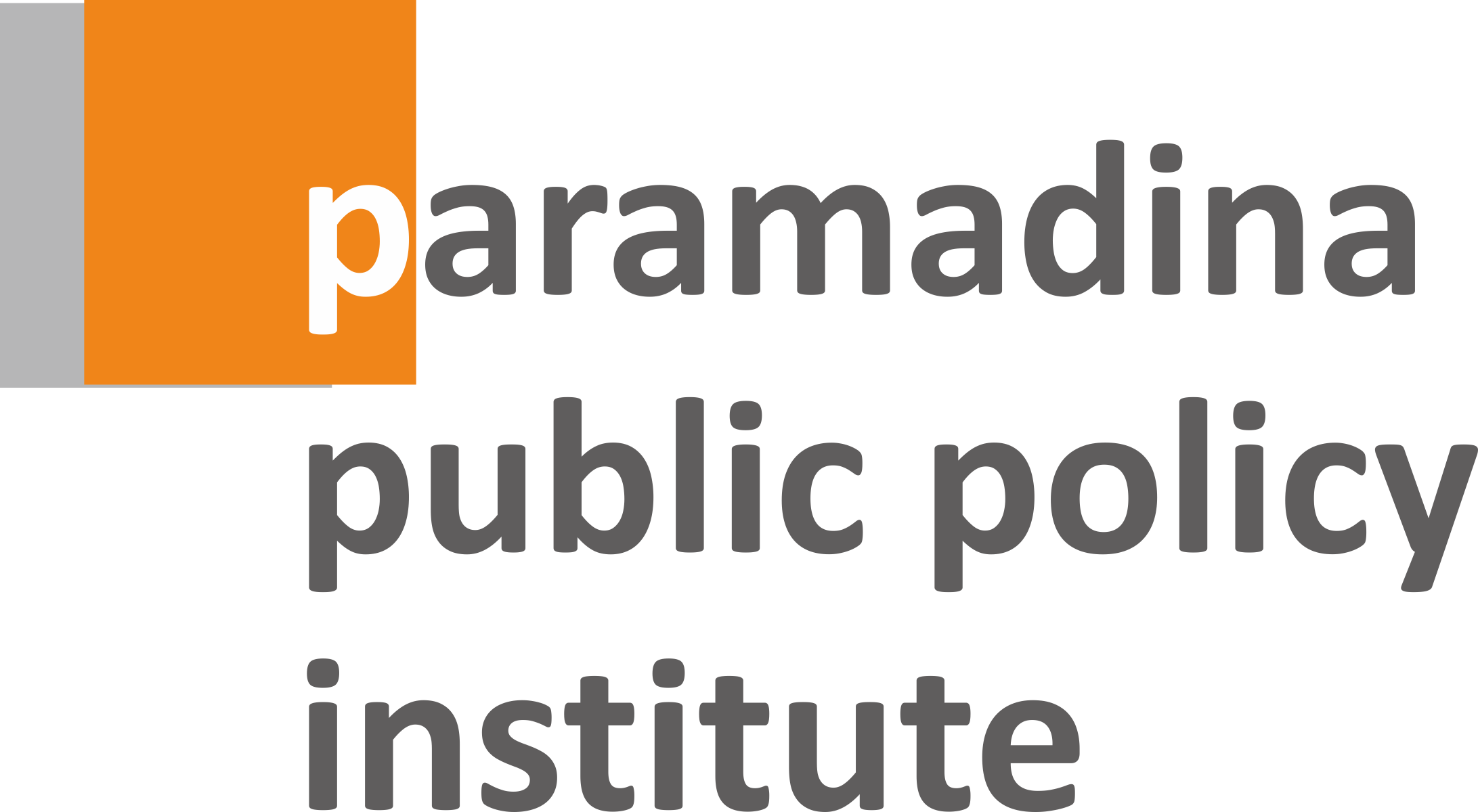
The Conversation Indonesia, Column – 12 June 2024
Various political parties often choose “quick” methods to win the public’s favor. One such approach is to nominate celebrities or well-known figures as candidates for legislative positions (caleg). These parties hope that by promoting public figures, they can garner substantial votes in regional and national legislative elections because they believe voters will prefer familiar names.
Data reveals that many public figures have been nominated by various political parties in Indonesia. According to the media, 10 political parties have included public figures among their prospective candidates for the 2024 elections. Some of the notable names running include candidates from the National Awakening Party (5 names), the Great Indonesia Movement Party (10 names), the Indonesian Democratic Party of Struggle (14 names), the Functional Groups Party (3 names), the National Democratic Party (9 names), the Prosperous Justice Party (1 name), the National Mandate Party (17 names), the Democratic Party (4 names), the Indonesian Solidarity Party (3 names), and the United Indonesia Party (11 names).
In previous periods, the strategy of fielding celebrities has been somewhat successful in helping parties attract votes, but indirectly, this also diminishes the democratic purpose of elections. Elections should be about selecting leaders and competing on policies, not merely showcasing popularity to gain more seats in parliament.
Political Parties and Their Celebrities
The National Mandate Party (PAN) is reportedly the party that fields the most candidates from the showbiz world. The list of public figures nominated by this party, founded in 1998, for the 2024 Legislative Election includes names such as Uya Kuya, Opie Kumis, and Elly Sugigi. They join other celebrities previously associated with PAN, such as comedian Eko Patrio and actress Desi Ratnasari.
The Indonesian Democratic Party of Struggle (PDI-P), the leading party in the government coalition, has also nominated many celebrities, including Rieke Diah Pitaloka, Rano Karno, Nico Siahaan, singers Krisdayanti and Marcell Siahaan, and comedian Denny Cagur. In the previous legislative period (2019-2024), PDI-P had the highest number of celebrities successfully entering the national parliament.
The Great Indonesia Movement Party (Gerindra) has also nominated several celebrities for the 2024 Legislative Election. They include singers Melly Goeslaw and Ahmad Dhani, Taufik Hidayat, Ari Sihasale, Derry Drajad, and Didi Mahardika. This adds to the list of celebrities who have already joined Gerindra in the national parliament since the previous period, such as Rachel Maryam, Jamal Mirdad, Moreno Suprapto, and Mulan Jameela.
Other parties like the National Democratic Party (Nasdem), the National Awakening Party (PKB), and the Democratic Party have also registered a lineup of celebrities for next year’s political contest. The United Indonesia Party (Perindo), seeking a chance to gain seats in the national parliament, has nominated more than 10 celebrities, including those recently popular on social media like Aldi Taher, Vicky Prasetyo, Venna Melinda, Kalina Ocktaranny, and Yusuf Mansur.
It is important to note that not all celebrities become candidates instantly. Some have been involved in politics from the beginning and have followed the party’s cadre process, not just being promoted for electoral purposes. One such example is Rano Karno, a well-known celebrity and PDI-P politician. He won the 2008 regional election, becoming Deputy Regent of Tangerang from 2008 to 2013, then won the 2011 election to become Deputy Governor of Banten. Afterward, he was elected as a member of the national parliament for the 2019-2024 period representing Banten. Despite being a celebrity, Rano Karno has long been active in political activities, with his political career emerging from a lengthy party cadre process.
Political Marketing
Political ideas, issues, party ideologies, leader characteristics, and work programs require a strategy to be accepted by the broader public. This strategy is called political marketing. On one hand, political marketing serves as a means for parties to introduce their political ideas to the public. It can also create a democratic atmosphere, encouraging public participation in politics.
On the other hand, political marketing can also degrade the quality of democracy. Many parties engage in marketing without clear ideas or concepts, ultimately relying on public figures with popular appeal. The popularity offered by public figures can indeed be a strong asset in elections, but in reality, this form of marketing is not sustainable. Often, these figures do not bring clear ideas or concepts, leading to public dissatisfaction with their performance once elected, especially if the public figure was recruited instantly rather than being a product of the party’s internal cadre process.
In the long run, this could lead to public apathy towards democratic activities. Ultimately, this strategy will harm both the parties and the general public. Utilizing public figures to advance in political contexts is not inherently “forbidden,” but it should not eliminate political innovation and the promises made to the public. Political marketing should be based on the political ideas being offered. Without clear political ideas, and relying solely on popularity, the marketing efforts will not be effective.
If parties insist on fielding celebrities, it would be better for the nomination process to go through the party’s cadre process first. This process will shape the candidate’s identity to have leadership qualities and generate solutions for societal issues.
Political “Beauty Pageant” Contest
The parties’ efforts to gather votes through the popularity of public figures without substantive political content have diminished the quality of the political contest itself, making it resemble a beauty pageant. This is because the election atmosphere increasingly emphasizes the physical attributes of contestants to capture the attention of the jury – in this case, the voters – to win.
To a certain extent, elections do share similarities with beauty contests. All participants strive to appear favorable before the voters. However, elections are intrinsically linked to democratic values and the future of the society as voters.
Nominating candidates merely based on their popularity is a regrettable consideration. The primary aspects should not be popularity but the candidate’s background – such as whether they have a clean criminal record – and the programs, policies, and political ideas they can offer.
Importance of Democratic Literacy
Given that political parties aim to secure voter support, it is crucial for the public to increase their knowledge about accountable democratic practices. For the public, the most feasible step is to elect representatives at both the executive and legislative levels who have good programs relevant to our needs as a society and a clean track record. Technology can be utilized to research candidate profiles.
The public can also start normalizing political discussions within communities and families. Currently, many people consider political discussions too “lofty” and even believe they can damage relationships with relatives if there are differing opinions. Society must genuinely adopt the mindset that differing political views are normal.
These methods can be part of the process of increasing democratic literacy, which will help improve the quality of democracy. This improvement will push political parties to avoid “quick” methods and compel them to provide competent figures with brilliant programs to address national issues.
Adrian Azhar Wijanarko, Chair of the Management Study Program, Paramadina University, Director of Research, Paramadina Public Policy Institute
This article was first published in Indonesian, in The Conversation Indonesia on July 6, 2023.

